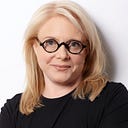
In One Canoe
How many times have we heard this theme touted by leaders of all sorts? We’re a nation divided: politically, ethnically, economically, religiously, and more. We’re divided not only from one another but, too often, against one another. We’re at war with ourselves.
We saw our dividedness January 6th when the mob stormed the Capitol leaving the dead and injured in their wake. Less violently, some people refused to wear masks and others of us still don them every day. We have different approaches to the pandemic.
A Washington Post opinion piece last week by Matthew Milner and Richard Ngata compared the pandemic’s impact in the U.S. with its results in New Zealand. The U.S. is experiencing a COVID death rate of more than 160 people per 100,000 citizens. New Zealand, by contrast, lost a total of 26 lives at a rate of 0.53 per 100,000.
New Zealand’s an island. That slowed transmission. But England is also an island, and the pandemic has ravaged London and its environs. So why did New Zealand escape so relatively unharmed? Milner’s and Ngata’s answer:
The lesson of the coronavirus is that an individual approach is not sufficient and that it takes a team for us all to gain true freedom. The Māori proverb ‘He waka eke noa’ expresses these sentiments clearly: We are all in this canoe together.
The sense of oneness — “being in this canoe together” — didn’t arrive in New Zealand with the coronavirus. It’s deeply embedded in the historic culture of the nation. Said simply: Others have importance equal to, and even greater than, one’s own.
It’s too late for Americans to adopt New Zealand’s values to slow our rate of infections. But there’s a light dawning at the end of the pandemic tunnel. Eventually, we’ll emerge and need to re-socialize again. Already we’re speaking of “returning to normalcy” by which we mean, I think, going back to how things used to be, pre-pandemic.
Frankly, I have no interest in going back. None. George Floyd didn’t die of the COVID; he died as a direct result of racism and the violence it justified. Read Jon Meacham’s biography of John Lewis (His Truth is Marching On); who wants to go back to the bloodied Edmund Pettus Bridge? See the indecency of the super rich and the broken poor, littering not just Wall Street but also Main Street. I hope, however naively, that we will never return to the ferocious individualism that was promoted in the Reagan Era leaving us with huge economic disparities and lovely tax breaks for the rich.
I want to go forward into a different future.
A few weeks ago I was surprised by a call from a public figure who remembered that we’d met at her university’s commencement in 1993. I’d been given an honorary doctorate and an invitation to speak. As it turned out, and as my caller recalled it, I told the graduates that:
…the irony of this moment is that, after spending twenty years teaching you to be independent, the most critical lesson we should have taught — and the one that we all eventually learn — is that we are, none of us, independent. We are absolutely and irrevocably dependent on one another.
What I called for that graduation day was nothing less than community, the recognition that we are in this canoe together.
This is community: The conviction that, as a mother, so long as I can hear the cry of one child gasping in hunger, my children are not all fed. That so long as one African-American man feels the scalding heat of prejudice, my brothers are not all free. That so long as one gay person is abused for the truth of their character; that so long as one Jewish-American woman is caricatured for the sake of someone’s humor; that so long as one impoverished young woman is selling her body to feed her addiction — my community is not at rest.
I don’t really know how to effectively call for the practice of cultural unity or the creation of diverse, reliable, supportive communities. It is, as they say, “above my paygrade.” When I hear myself say, “We need more community,” I feel naïve. But when I realize that the Proud Boys and their ilk are a tiny faction in a vast population, and we have an opportunity to start over with the goal of real community — then I take hope that President Biden is right: There could be “enough of us.”
I want to have lunch with a friend. Play in a park with my granddaughter. Bring my cranky neighbor a fresh-baked pie. Hug my friend since high school when she comes to visit. After a year of disconnections I want to be re-connected. I want to experience community.
Watching now-Secretary Deb Haaland’s Senate confirmation a few days ago, a wave of hope washed over me. Seeing her proud Native American face; hearing her words drawn from centuries of sustained, surviving community — it all seemed possible for a moment. If she can become Secretary of the Interior, perhaps a call to national community is not as crazy or naïve as it sounds.
And even if it is crazy or naive, I don’t care: It’s what I’ve longed to experience all of my adult life. That hasn’t changed. From the call of a 1993 commencement address to Deb Haaland’s ascension to the President’s Cabinet — there’s possibility. There’s community. There’s hope.
